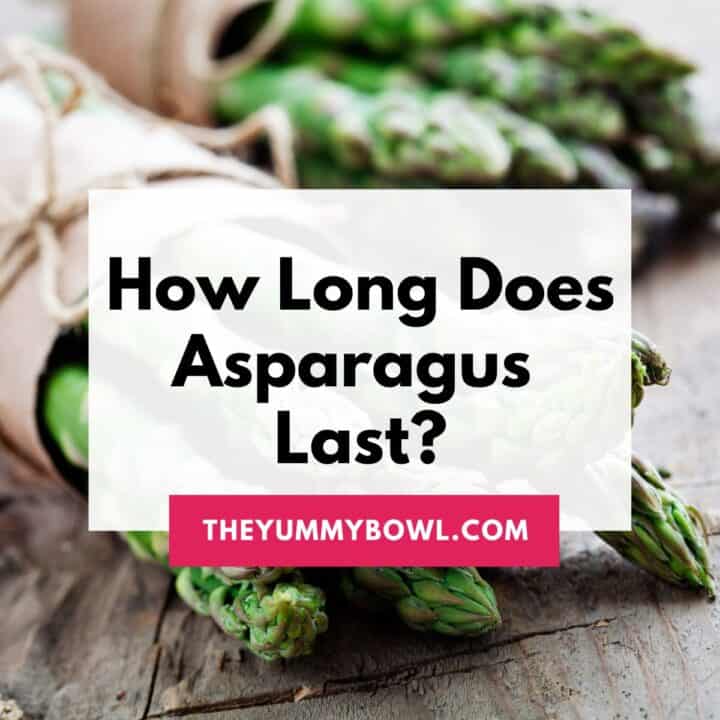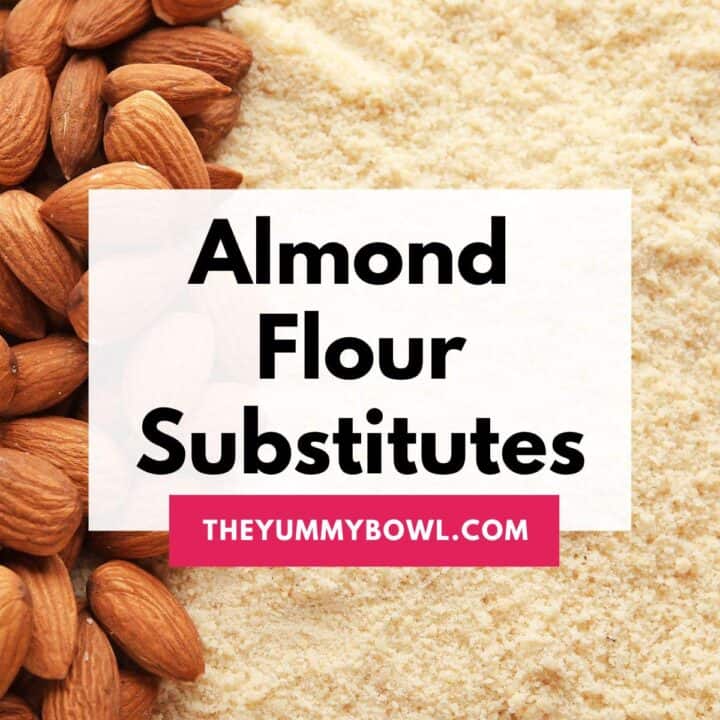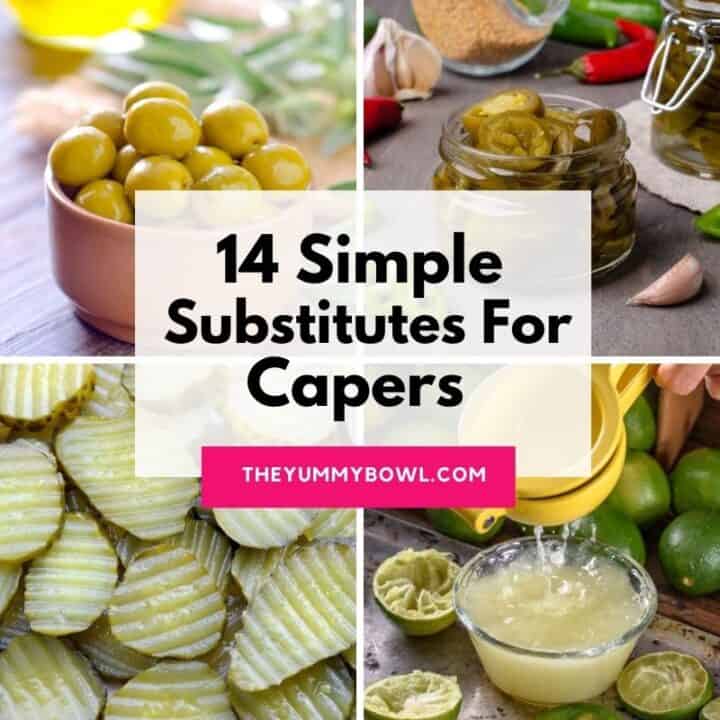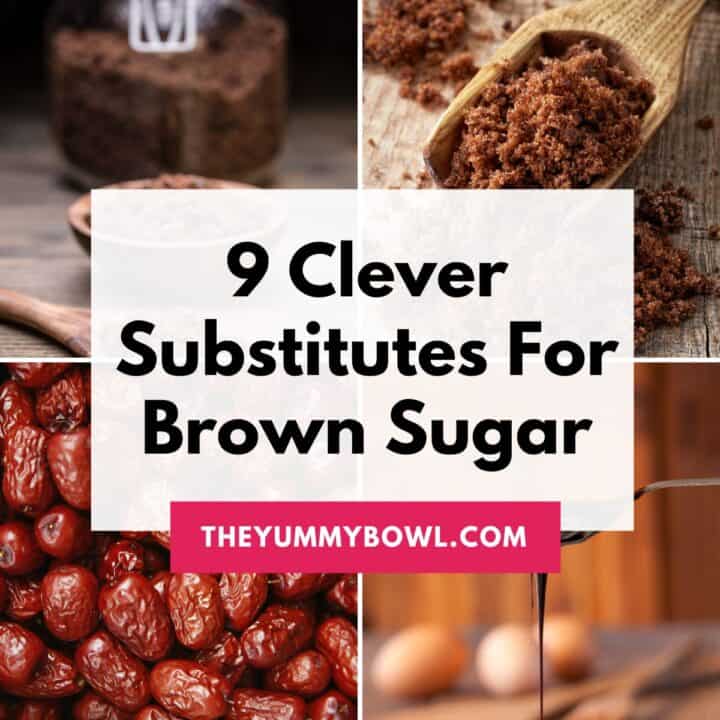While peanut butter may have had the spotlight for many years as the top nut butter of choice, many alternatives have emerged with the rise of specialized diets, particularly those catering to food allergies. One of those good alternatives is sunflower butter!
This post highlights the differences between sunflower butter and peanut butter, their nutritional values, uses, and some recipes for inspiration.
With the information at hand, you’ll be able to decide which of these butters is best for you or simply add another butter to your diet for variation!

Jump To
- The Origin of Nut Butters
- Peanut Butter Alternatives
- Is Sunflower Butter A Good Alternative To Peanut Butter?
- Differences Between Sunflower Butter and Peanut Butter
- Nutritional Value
- Taste
- Processes
- How to make sunflower butter and peanut butter
- How to store homemade sunflower butter and peanut butter
- Uses
- Sunflower butter or peanut butter recipe ideas:
- FAQs
- Bottom Line
- More Cooking Tips and Ideas
- Comments
The Origin of Nut Butters
Peanut butter, as we know it, was first invented in 1895 by Dr. John Harvey Kellogg, although the actual grinding of nuts can be traced back to 1500 BC in Peru!
While sunflower seeds are obviously not nuts, sunflower butter (commonly referred to as SunButter) has been grouped with different types of nut butter. In fact, peanuts aren’t nuts either; they're actually legumes!
Peanut Butter Alternatives

While peanut butter is likely to be the most popular of all ‘nut’ butters available today, there is also a large selection of alternatives available on the market, such as almond butter, cashew butter, hazelnut butter, walnut butter, and pistachio butter.
Seed butters have also skyrocketed in popularity, with sunflower butter leading the way!
The increase in peanut allergies and tree nut allergies combined with the growing demand for alternative protein sources for vegetarian, vegan, and keto diets has created greater demand for the use of SunButter.
Is Sunflower Butter A Good Alternative To Peanut Butter?
Absolutely! Sunflower butter is an ideal substitute for peanut butter, especially in recipes since it’s a 1:1 substitution.
These days, you can find SunButter stocked in stores with creamy or crunchy textures, unsweetened, and even in chocolate flavor!

Differences Between Sunflower Butter and Peanut Butter
The most obvious difference between these two is that sunflower butter is made from sunflower seeds, while peanut butter is made from peanuts.
Let’s take a closer look into some of the lesser-known differences between these two butters:
Nutritional Value
SunButter is a rich source of vitamin E, iron, magnesium, manganese, selenium, phosphorus, copper, and zinc. Its anti-inflammatory properties make it an excellent choice for those who want to reduce inflammation in the body and boost the immune system.
Peanut butter is a rich source of vitamin B3 (niacin), and vitamin B6, and has a slightly higher percentage of protein than sunflower butter. It’s also a great source of dietary fiber which can promote weight loss.
The biggest difference between the two in terms of nutritional benefits is related to the fat content. Peanut butter contains more saturated fat due to the presence of palm oil, while sun butter contains monounsaturated fats. Most SunButters contain 30% less saturated fat than peanut butters.
Overall, peanut butter contains fewer calories than SunButter per serving of creamy butter, which could vary if you opt for natural peanut butter products that omit sugar and hydrogenated oils.

Taste
It may not be a shock to learn that sunflower seeds and peanuts taste nothing alike.
Peanut butter tastes very nutty and can incorporate sweetness and saltiness when additives are included in the creamy spread.
Sunflower butter has a more complex profile with an earthy flavor and toasty undertones.
Processes
Sunflower butter and peanut butter use the same processes, starting with roasted seeds or nuts that are then broken down in a food processor to a fine powder, followed by a sticky and creamy texture after a few more minutes of processing.
Both use salt, sweeteners (like honey and maple syrup), and emulsifiers to modify the taste of the finished product.

How to make sunflower butter and peanut butter
If you want to make homemade sunflower butter or peanut butter, combine 2 cups of raw unsalted peanuts or sunflower seeds with:
- 1 teaspoon of sea salt
- 1-2 teaspoons of honey
- 1-2 teaspoons of vegetable oil
Process the seeds or nuts in a food processor until the mixture becomes sticky like a paste and then add the optional ingredients listed above.
- Further Reading: How To Freeze Peanut Butter
How to store homemade sunflower butter and peanut butter
Homemade sun butter and peanut butter can be stored in an airtight container or jar at room temperature or in the refrigerator.
Refrigeration will extend the life of these butters to a few months and also help thicken the butters since they are susceptible to separating at room temperature.
Grocery store brands of peanut butter won’t separate at room temperature due to the added stabilizers.
Uses
Sunflower butter and peanut butter can be used as spreads, dips, or ingredients in baked goods, no bake cookies, smoothies, smoothie bowls, or as a topping for yogurt and ice cream!
Sunflower butter is known for turning baked goods slightly green due to chlorogenic acid (an antioxidant in sunflower seed butter) being exposed to heat. Thankfully, the color change doesn’t affect the flavor.

Sunflower butter or peanut butter recipe ideas:
- 3-Ingredient Healthy No Bake Peanut Butter Cookies (Dairy Free)
- The Best Gluten Free Peanut Butter Cookies In Air Fryer
- No Bake Chocolate Oatmeal Cookies
- The Best Healthy Oatmeal Cookies
- Matcha Oatmeal Porridge Bowl
FAQs
No. These butters have their own distinct taste, although a similar texture.
This depends on your own nutritional goals as well as any dietary allergies or deficiencies that you may be trying to cater to.
Both are good sources of vitamins and mineral content. Like everything, enjoy your SunButter and peanut butter in moderation!
Yes! SunButter is safe to eat if you are allergic to peanuts and tree nuts. When buying sunflower butter, always check the label of the product to ensure that it hasn’t been stored in a warehouse with peanut-based products for allergy purposes.
Bottom Line
Sunflower butter and peanut butter appear to have equal health benefits and have the same uses. At the end of the day, choosing one over another comes down to personal preference and perhaps even allergies.
Which do you prefer? Leave a comment below with the reasons for your choice and how you love to use your preferred butter!
More Cooking Tips and Ideas
I would appreciate it so much if you left a comment about this post below! Subscribe to join the TYB newsletter and receive free recipes straight to your inbox! Let's connect via Facebook, IG & Pinterest!
Note: Nutrition information is estimated and varies based on products used.
Full Nutrition Disclaimer can be found here.







Comments
No Comments